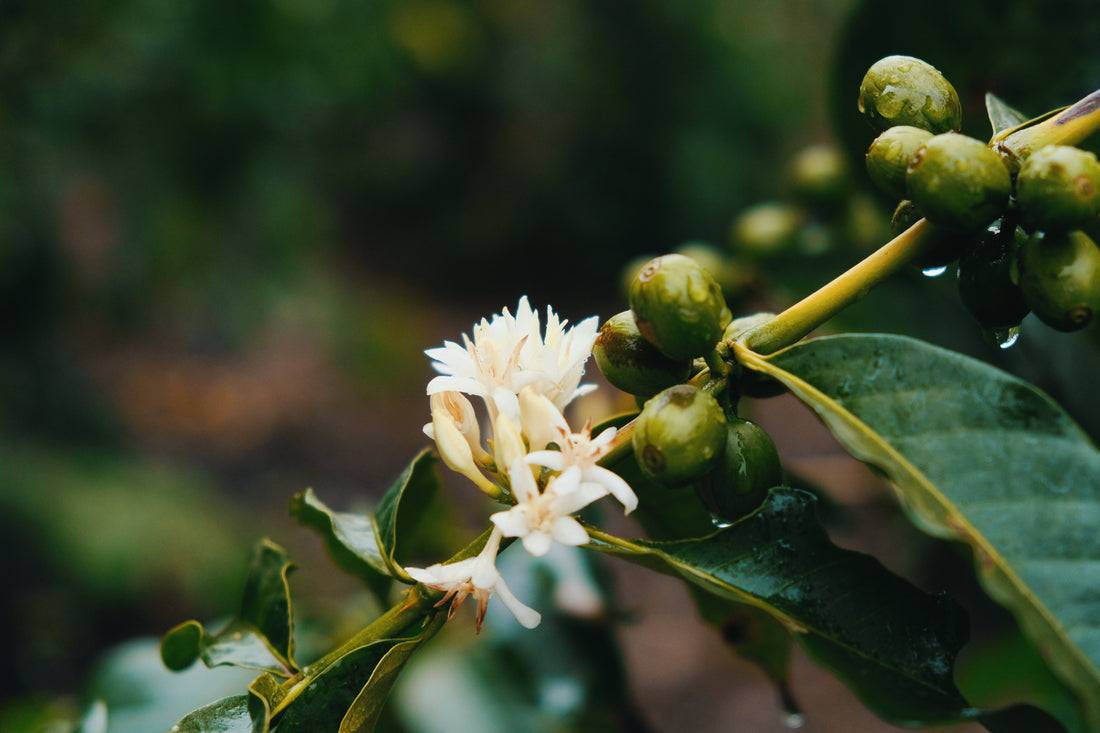
Does the World Really Need another Coffee Importer?
Share
Emotions run high these days, just like always.
The recent decision by the CQI to hand over its Q certification program to the SCA has sent shock waves through the industry (something I’ll address in a future Unfiltered essay). Trump’s tariffs have brought developing-world uncertainty to the developed world. Political unrest, geographical challenges, and a Recession-by-any-other-name revving up its engines in our ears… there are many reasons why coffee people feel worried.
Beyond all this, the players in the field have changed.
As happens every 7-10 years, a massive contraction is taking place, and the carnage is everywhere. I’ll just address green coffee players, but bankruptcies and closures and liquidations and mergers are everywhere.
Casualties of Contraction
As most of you know, I was the CEO of Ethiopian vertically-integrated and Very Special Coffee Importer, Catalyst Trade, and in 2023 was forced to dissolve it at great personal cost. At the time, I could see how we were involved in the greater world—heck, with Mercon as our financier, the bankruptcy of that storied all-coffee maximum player impacted us enormously. (Though I must take responsibility: we had other problems which you can read in this piece).
 c. 2023, Catalyst Trade was cupping <100 coffees a day in its hyper-efficient lab under the leadership of Michael McIntyre, who is Swift's Sourcing Director.
c. 2023, Catalyst Trade was cupping <100 coffees a day in its hyper-efficient lab under the leadership of Michael McIntyre, who is Swift's Sourcing Director.
Across the street from our sumptuous coffee lab in downtown Portland, Oregon was the offices of Sustainable Harvest. Pause and hats off in respect to David Griswold and the team for doing the work for a long damn time. When I began to see the writing on the wall at Catalyst, David carved out some time for me to review the situation and confirm that we were well and truly in trouble, and gave me some personal advice that guided me through the ensuing bloodbath. And Sustainable Harvest itself was forced to subsume into Sucafina, within the same time frame.
We’ve got so many examples. Small importers failed or paused right and left, and many others simply halted expansion or growth until things sorted themselves out. Mighty Peace Coffee, a Congolese coffee importer, hit walls like Catalyst Trade did. Nordic Approach became part of Neumann Kaffe Gruppe. And it continues: recently, famed producer La Palma y El Tucan entirely halted its operations for a “regenerative pause”, sending additional shock waves through the industry. The great bloodbath of 2023 continues, with no end in sight.
Within Chaos, Opportunity
When, in 2013 with Michael McIntyre, I began building what became Catalyst Trade, I had no idea that we were operating in a small golden age for coffee and business in the USA and internationally. Things were so hard, it didn’t occur to me.
But we were in a really special microclimate in Portland, Oregon, working with producing groups in Ethiopia and other countries, right when buyers were getting smarter and more earnest, and when business was rewarded with profits. In a recent call with Chris Alspach of Oval Roasters in New York, we recalled the remarkable synergy of building coffee businesses in this incredible culture.
“Portland had this incubator effect,” he recalled. “Ten to fifteen years of everyone putting their heads together, going to each other’s shops.” We reminisced over how we sat down at a Stumptown coffee shop in, oh, maybe 2016, and just a little while later we were in Ethiopia together and planning bag labels and creating a unique sourcing program for Upper Left Roasters, where Alspach was Head Roaster for years.
To use the current term popularized by techbros, it’s an “arbitrage opportunity.”
I think we are entering one of those now.
 Listening and building is more important than ever now. This was me and my team c. 2023, working with Kenyan coffee producers.
Listening and building is more important than ever now. This was me and my team c. 2023, working with Kenyan coffee producers.
Running Into the Burning Building
Smart and well-positioned roasters, like Nick Visconti at Drink Coffee Do Stuff, are taking advantage of all this chaos to expand their businesses. If you ran a solid business before all this insanity hit, then you’re able to buy up entire operations, expand your book of business through stepping into the gap when other roasters fail, or buy liquidated inventory to offset your blended green costs. Ex-pro snowboarder Nick is one of the smartest heads in coffee that I know, and he reminded me on a phone call recently just how exciting this time is.
He’s been running a careful business, not over-leveraging it, and being very clear on the brand’s value proposition. Now, he’s able to take these opportunities to lay a groundwork for the next upswing. He is, in the words of M-Cultivo CEO David Paparelli on a recent call, “running into the burning building.”
I consider myself fortunate to get the chance to build something new in approximately the same cycle that demolished me a couple years ago. My own skin in the game at Catalyst Trade (personal guarantee of millions of dollars in debt) required a reset time, but now in 2025, I’ve re-emerged into this insanity of the coffee industry and what I see, as I saw before, is opportunity everywhere.
Coffee is a BUSINESS
I’ve noticed a squeamishness in many coffee people—roasters in particular—about opportunism in coffee. In my mind, and I’ll lay this out in more detail in the future, it’s tied into our over-reliance on the emotional and quasi-spiritual elements of culture in coffee. It’s also a factor of how many roasters (particularly in the United States) came to coffee from softer fields: literature or philosophy or seminary or music. Business, money-making, and profit-grabbing are the opposite of what brought these people to their businesses. This, by the way, was my approach for years as an ex-pro musician and a writer… I got into the business side of coffee with the same urgency and intensity that a rabbit gets out of a trap: for survival.
But honestly, coffee is not a religious mission. It’s a business. Do you want to make money in your business? I do. I choose coffee as a place to build a legacy for my child, in more than one way. And having been through the crucible of Catalyst Trade, I have no interest in play-acting business. This is the real deal. This is succeed or fail. There is no middle ground.
Running a coffee business as a business requires clear sight and a relentless hunger for opportunity. Which means that, with any luck, now is the perfect time to do something new and smart in coffee. Low hanging fruit can be scooped up from the ground and shoveled into the hopper, as long as you can stomach the risk and know what to do with the fruit.
Yes, the World Needs Another Importer.
So yes, the world needs another importer.
Buyers need another option, ideally one that marries previously-established trust with smart sourcing. Coffees that fit the menu, at reasonable prices. Just smart, no-nonsense coffee sourcing with no drama.
Producers need another option. With the winnowing of the field, they have fewer options too. Optionality is a key aspect of the free market, and tends to exert its own force. I have always believed that choices (options) are one of the most powerful ways to level the playing field. Producers should have enough options to sell their coffees that they can afford to negotiate without being put in a rough spot.
And I’ll be honest: I needed to start another import business.
I was withering without this project. Outside of coffee, in the gap between Catalyst Trade and Swift, I did some really cool things I’m proud of, including business school, professional public speaking, and a bunch of neat consulting—but this business is what I needed. The chance to connect producers and buyers I respect. I needed Swift Coffee Sourcing.
I hope, if you’ve come this far, that you feel you also need Swift Coffee Sourcing. Reach out, and tell me what you hope to see from the newest coffee importer on the block!

c. 2015, when Michael and I were in the early stages of building this thing globally. Wow, we were young.
Prefer to Watch? Check this out from Emily on our Youtube channel (12 min.)
